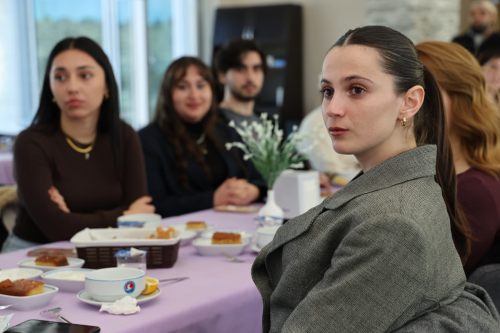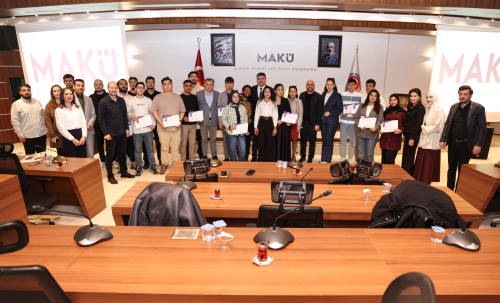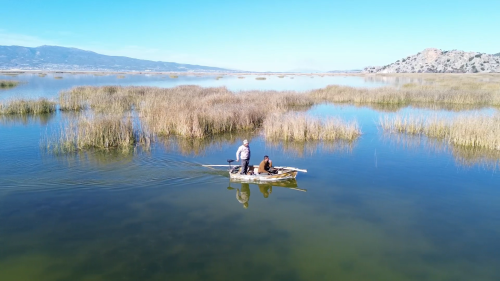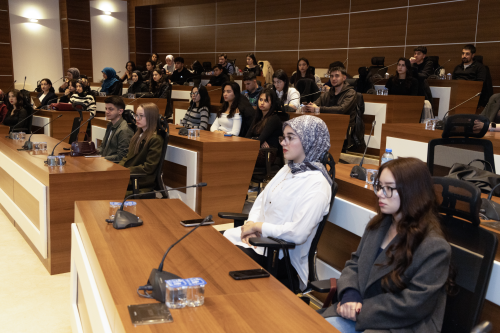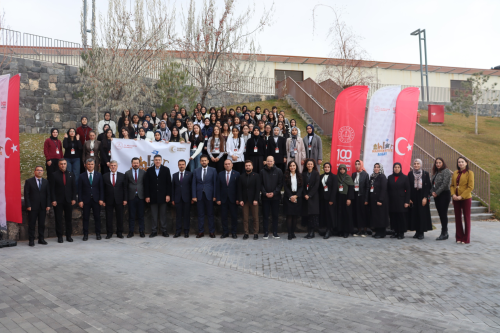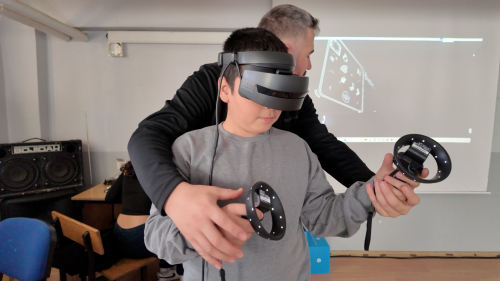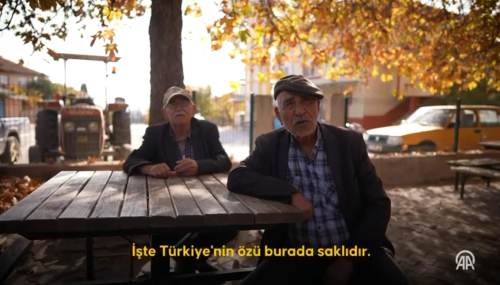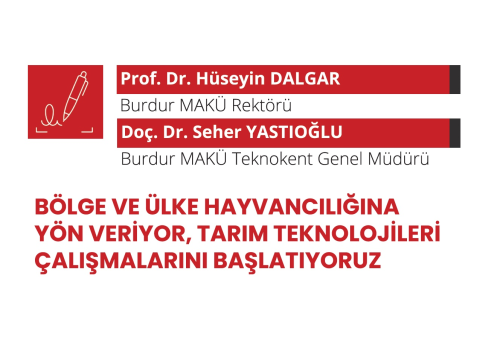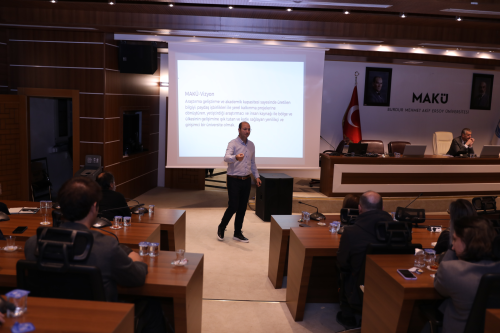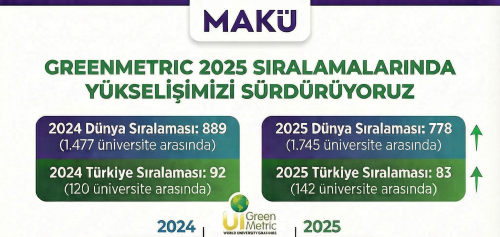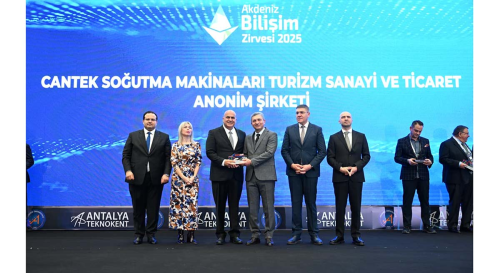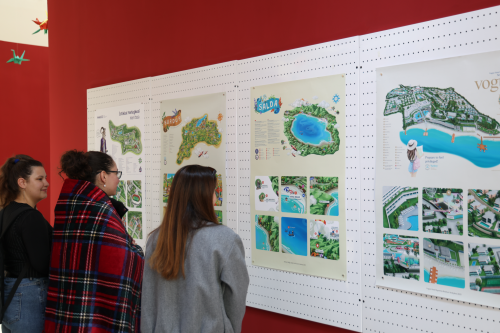MAKÜ's Boubon Ancient City Geoarchaeology Training Project Completed
Yapılış Tarihi | 03 September 2024, Tuesday
Under the leadership of MAKÜ Faculty of Arts and Sciences Archaeology Department Faculty Member Dr. Öğr. Üyesi Salih SOSLU, the project titled “An Example Application Training for Interdisciplinary Research in the Field of Earth Sciences: Geoarchaeology” within the scope of TÜBİTAK 2237-A Scientific Teaching Activities Support Program, which started on August 26, 2024, has been completed.
In the TÜBİTAK project, where the organizing committee included Prof. Dr. Yıldırım Atayeter, Prof. Dr. Zafer Gölen, Dr. Öğr. Üyesi Mahmut Sarı, Dr. Öğr. Üyesi Salih Soslu, Dr. Efdal Kaya, Dr. Onur Yayla, and Dr. Uğur Tozkoparan, project manager Dr. Öğr. Üyesi Salih Soslu stated that the project progressed within the framework of field studies and related training at Boubon Ancient City, providing a working environment that included both practical and theoretical aspects in geophysics, geology, geomorphology, geography, geographic information systems, photogrammetry, archaeology, drawing techniques in archaeology, history, and tourism to 15 participants from different universities and fields such as archaeology, geography, geology, urban planning, and architecture.
Providing information about the project's training, Project Manager Soslu mentioned that Prof. Dr. Yıldırım Atayeter gave training on “General Geomorphology of Boubon Ancient City and Its Surroundings”, Prof. Dr. Zafer Gölen on “General Historical Status of Archaeology and Artifact Smuggling”, Prof. Dr. Gülcan Sarp on “Image Enhancement in Remote Sensing”, Dr. Öğr. Üyesi Mahmut Sarı on “Magnetic Vertical Gradiometer and GPR (Ground Penetrating Radar) Ground Radar”, Dr. Volkan Arı on “Using Brunton Compass in Layered and Faulted Structures”, Dr. Onur Yayla on “Techniques for Producing High-Resolution Data from UAV and Analysis and Interpretation of UAV Data”, Dr. Ayşegül Soslu on “Drawing Techniques and Application Training in Archaeology Boubon”, Dr. Öğr. Üyesi Salih Soslu on “Historical Geography of Pisidia-Lycia and Bronze Statues of Boubon Ancient City”, Dr. Uğur Tozkoparan on “Archaeological Tourism Potential and Cultural Routes of Boubon Ancient City”, Specialist Mustafa Çidem on “Ancient Water Systems and Boubon Example” and Dr. Efdal Kaya on “Basic QGIS Components: Vector and Raster Data Manipulation”. He stated that these trainings created an informative environment that was descriptive, inquisitive, argumentative, and analytical, specific to the project's purpose and scope.
Project Manager Soslu stated that the selection of Boubon Ancient City as the project subject was influenced by the recent efforts initiated by the T.C. Ministry of Culture and Tourism to repatriate historical artifacts to the homeland. He noted that this development has become a topic of discussion in the fields of History, Geography, Geology, Culture and Tourism, especially Archaeology, with the return of some bronze artifacts belonging to Boubon that were smuggled abroad. Therefore, he expressed that the ministry's initiated struggle could become much stronger with the increase of scientific studies on Boubon, such as the project they conducted.
Addressing the geophysical, geographical, and archaeological context of the project, Project Manager Soslu stated that within the scope of the project, the study locations determined in Boubon were analyzed in more detail and accurately using the techniques and methods of earth sciences disciplines; accordingly, in the geophysical studies conducted at the Stadion, Agora, Theater, and Sebasteion, architectural structure remains and metallurgy samples were encountered. He mentioned that the structure remains and metallurgy detected underground through geophysical studies could provide clear and guiding information to archaeologists who will conduct excavation works. He emphasized that the analysis results of the data here would be examined and discussed according to the scientific reports prepared by the trainers and later shared with the scientific world in an international publication.
Project Manager Soslu stated that MAKÜ Yeşilova İsmail Akın Tourism Vocational School and Lavanta Tepesi Hotel SALDA, used as the school's application unit, hosted the project, noting that the vocational school's classrooms were used for the project's theory lessons and the hotel section provided accommodation for the participants.
Diğer Haberler
